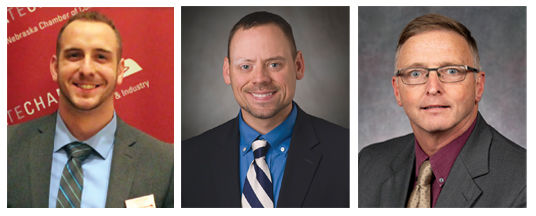You may think of industrial engineering (I.E.) in terms of manufacturing—how can a production process be made better? But industrial engineers reach into a lot of other sectors—such as finance, health care, insurance, and even entertainment.
Consider the process for settling an insurance claim, the layout at a concert facility, or the "Fast Pass" system at Disney Parks—they all involve systems crafted by industrial engineers.
Industrial engineers are big-picture problem solvers who optimize systems and processes. So, when Tyler Rigby ’17 and Dr. Paul Lynch, assistant professor of industrial engineering, first talked about forming a Materials and Manufacturing Group (MMG), Lynch looked at it through an I.E. lens.
"The first thing you have to consider is resources, which is why I wanted the founders to diligently set the club up with the full support of the professional manufacturing community," Lynch said. "Then you can figure out how to use those resources to attract and benefit members. Students are busy, so you have to give them a compelling reason to attend meetings."
200,000 reasons to join
In the past five years, club co-advisers Lynch and Shannon Sweeney, associate professor of engineering, have given club members more than 200,000 reasons to attend meetings. That’s the amount of scholarship dollars students in the Materials and Manufacturing Group have secured since the group’s inception.
"Every meeting starts with a rundown of manufacturing job, internship, and scholarship opportunities," said Lynch. "After that, we have a guest speaker from the manufacturing industry."
So, for a one-hour, once-a-month investment, members get two of the most valuable things they can acquire outside of a college classroom—professional contacts and opportunities for hands-on experience. This is in addition to learning about available scholarships.
It’s no wonder the club has grown into one of the largest on campus, with as many as seventy-five active members from engineering, business, and science programs.
The club is actually a hybrid of an existing American Foundry Society (AFS) club and a new chapter of the Association for Iron and Steel Technology (AIST). Lynch, Rigby, and other founding students worked with AFS Club adviser Sweeney to combine the two clubs into the MMG. Members are asked to join at least one of the professional organizations—AIST or AFS, which both offer low student rates.
Club results from chance meeting
The club came about thanks to a chance meeting when Lynch, who had just begun working at Behrend, met Rigby, then a Mechanical Engineering student and AIST scholarship recipient, as Rigby was distributing free T-shirts from an AIST guest speaker event he had helped coordinate.
"We started talking, and I learned that Dr. Lynch had also received an AIST scholarship in the past and had a great passion
for metal casting," Rigby said. "That conversation led to many more that ultimately resulted in the formation of the Materials and Manufacturing Group."
Now a mechanical engineer at Nucor Steel in Nebraska, Rigby estimates his club experience and affiliations with AIST, AFS, and the Society of Manufacturing Engineering and the Fabricators and Manufacturer’s Association benefited him to the tune of nearly $40,000 in scholarship money.
Learning by leading
Rigby describes working with Lynch, Sweeney, and the other students who helped form MMG as one of his most rewarding experiences at Behrend.
"We were able to not only help businesses in the area, but also help our classmates find opportunities and future careers that they might not have considered," Rigby said. "For myself, if you had told me at my high school graduation that I’d be happily working at a steel mill in Nebraska, I’d have never believed you."
Rigby said Lynch was, and continues to be, a "fantastic mentor, professor, and friend."
"Not only was he essential in forming MMG, but he helped me grow as a student, a leader, and a person," Rigby said.
Lynch, a first-generation college graduate from the anthracite coal region of Pennsylvania, worked in manufacturing before becoming a faculty member, the latter a role that he believes allows him to make a difference and help people.
"Honestly, the biggest paycheck I get is hearing from students or graduates that I was able to make a positive difference in some way," Lynch said. "That’s really why I’m here. It makes everything I do worthwhile."
